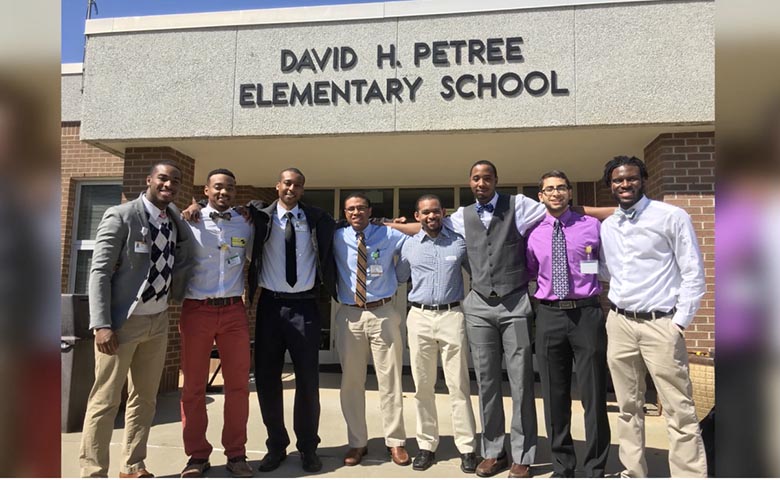Medical students are busy people. Wake Forest medical student Kwone Ingram uses some of his precious time to mentor minority boys in a local elementary school and to help place mentors where they are needed through a non-profit he founded.


Medical students are busy people. Wake Forest medical student Kwone Ingram uses some of his precious time to mentor minority boys in a local elementary school and to help place mentors where they are needed through a non-profit he founded.
“I hope they get a better sense of what they can accomplish,” said Ingram, a second-year medical student. He’d like the boys “to receive a feeling of love and that somebody cares about them—that they’re not doing this alone.”
The whole idea is to get someone who looks like them in their life,” and show them there are things they can do that don’t involve basketball or having a microphone in their hands,” Ingram told the Triad Business Journal.
Ingram and his fellow students teach the boys such life skills as tying ties, etiquette, dining habits, healthy eating choices, and accepted patterns of social interaction. Ingram’s program is called Supporting Young Scholars Through Empowerment and Mentorship (SYSTEM).
Growing up in nearby Walkertown, NC, Ingram benefited from the guidance of several mentors. One got him involved with the local fire department as a teenager, where he developed the goal of going into emergency medicine or trauma surgery.
Mentoring plays a crucial role in shaping the habits and dreams of young people. In short, mentors transmit culture and shape character.
The power of mentoring is its impact on what the founder of the Institute for Advanced Studies in Culture, James Davison Hunter, calls habitus, “the taken for granted assumptions that prevail in a particular society or civilization that make our world seem commonsensical.” In The Death of Character, Hunter writes: “Socialized as children into this habitus, we live with an intuitive feeling about the nature of the world around us. Culture, in this way, becomes so deeply embedded into our subjective consciousness that the ways of the world seem ‘natural’ to us.”
Programs like SYSTEM make it intuitive for African American men to mentor minority boys to show them the skills necessary for success and also to show them that they are cared about. This is how culture is transmitted and character is formed.
SYSTEM is a student-led non-profit service organization in Winston-Salem, NC, made up of current graduate and medical students attending Wake Forest University. If you are thinking about starting or joining a mentoring program, this checklist from the National Mentoring Partnership provides a great starting place.